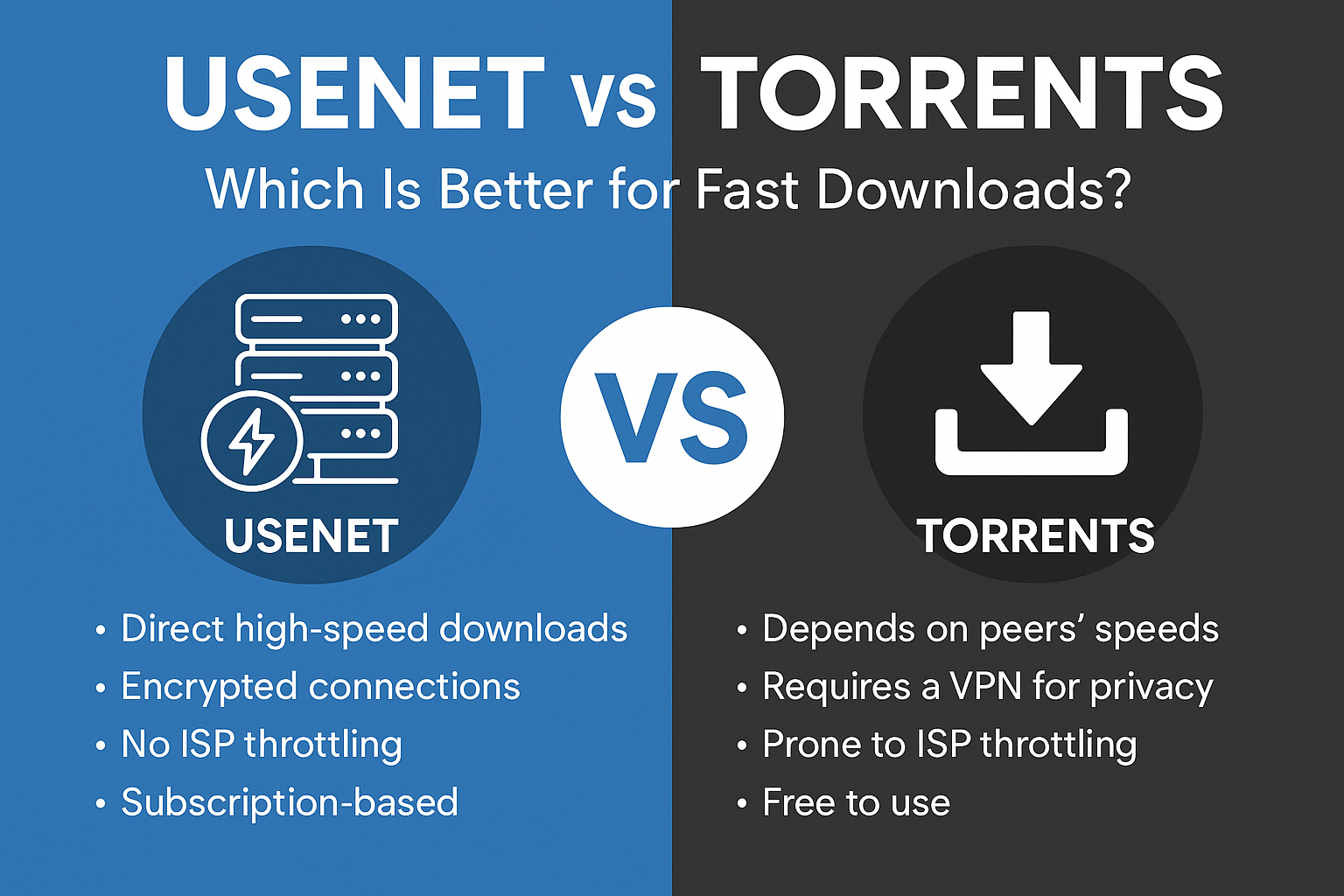Usenet vs Torrents: Which Is Better for Fast Downloads?

Are you tired of slow downloads and throttling issues? When it comes to downloading large files, many users debate between using Usenet vs torrents. Both offer high-speed options for different needs, but which is the best for fast downloads in 2025?
What Is Usenet?
Usenet is a decentralized network of servers where users can upload and download files, often at extremely high speeds. Unlike torrents, Usenet requires a subscription to access, but it offers:
- Direct high-speed downloads with no need for seeding
- Encrypted connections for privacy
- Access to a vast library of content
- No ISP throttling in most cases
What Are Torrents?
Torrents use peer-to-peer technology, allowing users to share files across a distributed network. While torrents are free to use, they have limitations:
- Download speeds depend on seeders and peers
- Potential ISP throttling and legal concerns
- Exposure of your IP address unless using a VPN
- Can be slower for rare files
Speed Comparison: Usenet vs Torrents
When comparing Usenet and torrents for fast downloads, Usenet usually outperforms torrents consistently. With Usenet, you are downloading directly from servers with high bandwidth, while torrents depend on other users’ upload speeds.
If you need consistent speeds for large files, Usenet is the superior choice. However, torrents may be sufficient for smaller, popular files if you do not want to pay for a service.
Privacy and Security
Usenet typically offers SSL encryption, keeping your downloads private from ISPs and third parties. Torrents require you to use a VPN for anonymity, and even then, your speeds may drop when using a VPN.
Ease of Use
While torrents are easier to set up and free, Usenet services often come with automated NZB indexing and download management tools, making them seamless for bulk downloading.
Using Deepbrid to Supercharge Your Downloads
Want the best of both worlds? Deepbrid offers a premium link generator that allows you to download from multiple file hosts, torrents, and even Usenet without limitations, all in one place. It helps you bypass speed restrictions while maintaining privacy, allowing you to download files securely at maximum speeds.
Whether you are downloading Linux ISOs, videos, or backups, Deepbrid helps you avoid slow downloads while staying anonymous online.
Conclusion: Which Should You Choose?
- Choose Usenet if you need consistent, high-speed downloads with strong privacy and are willing to pay for quality.
- Choose torrents if you prefer a free method for smaller or popular files and don’t mind speed variability.
- Use Deepbrid if you want a hybrid approach, leveraging torrents and file hosts without limitations while maintaining your privacy.
Both Usenet and torrents have their place in 2025, but if fast downloads and privacy are your priorities, investing in a Usenet subscription or using a service like Deepbrid will save you time and headaches.